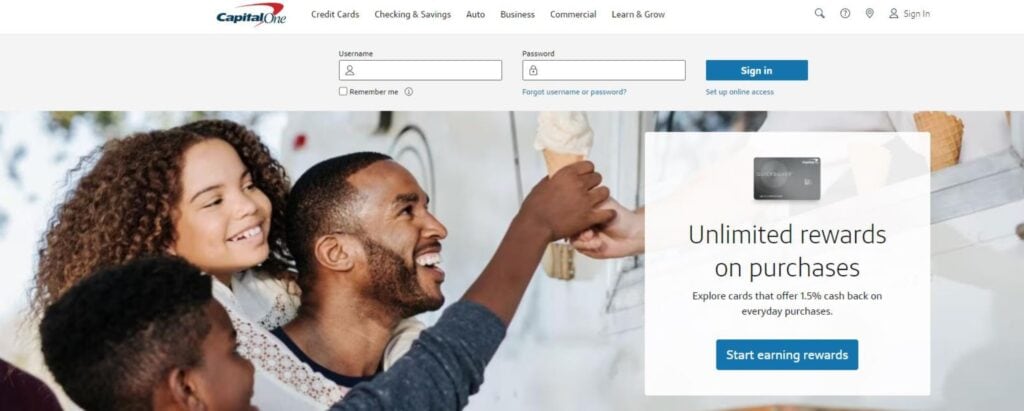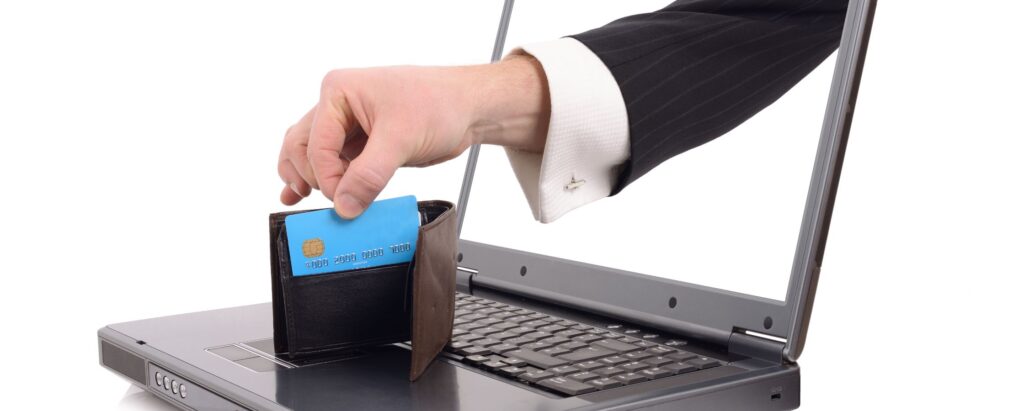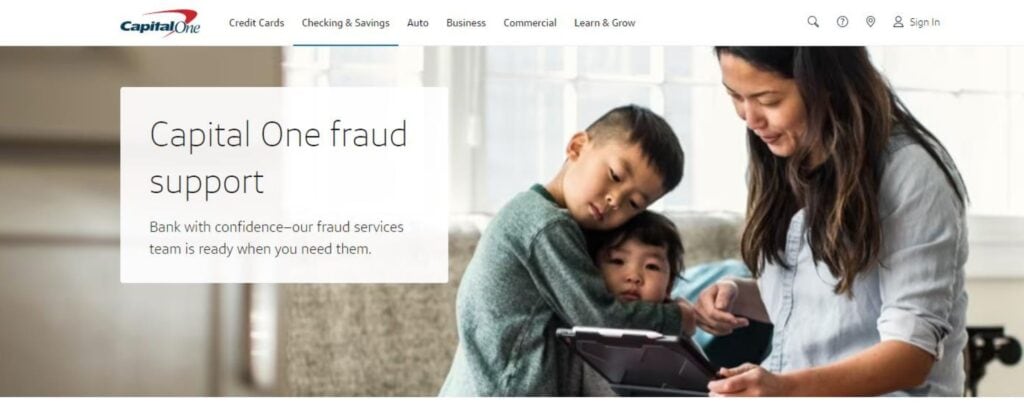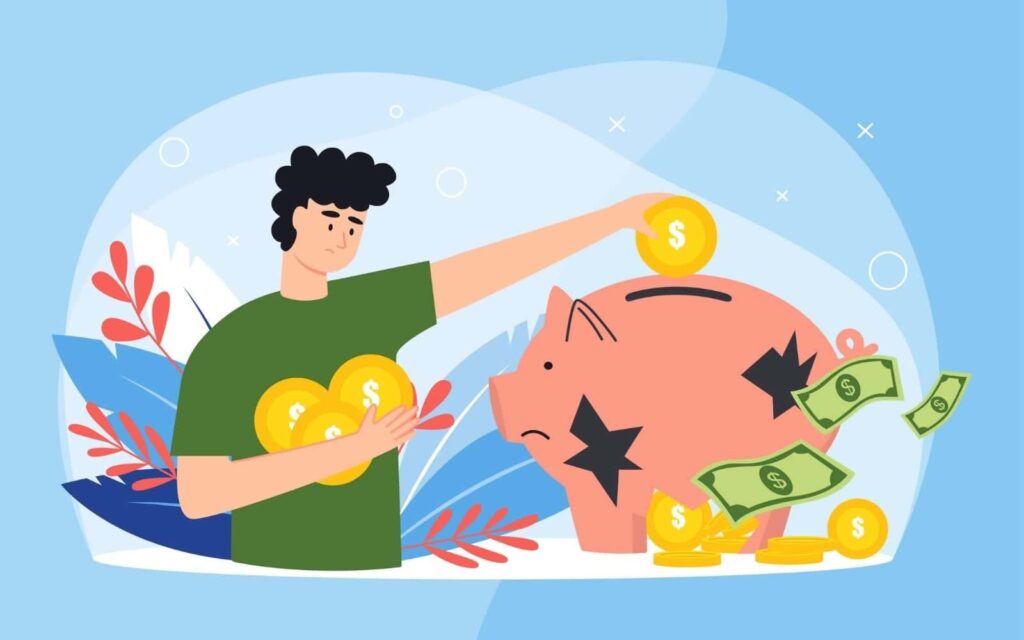Disclosure: This post may contain affiliate links. If you click on a link I may make a small commission at no extra cost to you. You can read the full disclosure here.
Last Updated on October 31, 2023 by Alex
In the fast-paced world of digital finance, you might be grappling with the complexity of a Capital One account restriction. Fear not; you’re not alone in asking why is my Capital One account restricted.
Whether you’re a seasoned Capital One cardholder or contemplating opening an account, understanding the ins and outs of account restrictions is paramount. From security measures to financial well-being, Capital One’s approach to account management is multifaceted, and understanding it can empower you.
In this post, you’ll learn the reasons behind Capital One account restrictions, what to do if it happens to you, and how to avoid Capital One restrictions in the future.
What Is Capital One

Capital One is a company that specializes in credit cards, auto loans, bank account services, and savings account options. It is a diversified financial services provider headquartered in McLean, Virginia, United States.
The company was founded in 1994 and has grown to become one of the largest banks in the United States. Capital One is also recognized for its distinctive advertising campaigns and its use of data-driven strategies to manage risk and personalize financial products for its customers.
Why Is My Capital One Account Restricted

There are various reasons why a Capital One account may be restricted. Some common reasons include:
- Security concerns
- Verification issues
- Non-compliance with terms and conditions
- Payment issues
- Identity verification issues
- System glitches or errors
Suspicious Account Activity
Suspicious activity can lead to the restriction of a Capital One account as a security measure to protect both the account holder and the bank from potential fraud or unauthorized access. Here are some reasons why suspicious activity might trigger an account restriction.
Fraud Prevention
Unusual or unexpected transactions, especially those that deviate from the account holder’s typical spending patterns, may raise concerns about potential fraud.
Identity Theft
If there are signs of identity theft, such as attempts to change personal information or make transactions that are inconsistent with the account holder’s history, the bank may restrict the account to prevent further unauthorized access.
Unusual Access Patterns
Accessing the account from different locations or devices that are not typical for the authorized user may be flagged as suspicious.
Large Or Unusual Transactions
Large transactions, particularly those that are inconsistent with the account holder’s usual behavior, can trigger suspicion.
Multiple Failed Login Attempts
Multiple unsuccessful login attempts or other authentication failures may indicate that someone is trying to gain unauthorized access to the account.
Geographical Anomalies
Transactions from locations that are unusual or unexpected based on the account holder’s history may be considered suspicious.
Unusual Account Activity
Any activity that deviates significantly from the norm for a particular account, such as a sudden surge in cash withdrawals or international transactions, may be flagged.
Insufficient Funds
Insufficient funds can lead to restrictions on a Capital One account for a few reasons.
Overdraft Protection
If you have overdraft protection linked to your Capital One account and you exceed your available balance, the bank may still cover the transaction by transferring funds from another linked account or credit source.
However, if you don’t have overdraft protection or if it’s insufficient to cover the transaction, the bank may restrict the account to prevent further negative balances.
Preventing Overdraft Fees
Capital One, like many other banks, may restrict an account to prevent the accrual of overdraft fees. By restricting the account, the bank can avoid allowing transactions that would result in a negative balance and associated fees.
Risk Management
Insufficient funds can be an indicator of financial stress or potential financial difficulties. As a risk management measure, the bank may restrict the account to prevent additional transactions that could worsen the financial situation.
Regulatory Compliance
Financial institutions are subject to regulations that require responsible lending and banking practices. Restricting an account with insufficient funds may be a proactive measure to ensure compliance with these regulations.
Preventing Default On Obligations
If you have outstanding obligations, such as loans or Capital One credit card payments, and there are insufficient funds to cover them, the bank may restrict the account to prevent defaults on these financial commitments. Want to know how to organize your finances better? Check this excellent post here.
Fraud

Fraud can lead to the restriction of a Capital One account as a precautionary measure to protect the account holder and the bank from unauthorized and potentially harmful activities. Here are some reasons why fraud might trigger an account restriction.
Unauthorized Transactions
If the bank detects transactions on the account that are not consistent with the account holder’s usual spending patterns, it may be an indication of fraudulent activity.
Stolen Or Compromised Information
If there’s evidence that the account information, such as credit card details or login credentials, has been stolen or compromised, the bank may restrict the account to prevent further unauthorized access.
Identity Theft
Instances of identity theft, where someone poses as the account holder to make fraudulent transactions, can prompt the bank to restrict the account to prevent additional unauthorized activities.
Unusual Access Patterns
If there are multiple login attempts from different locations or devices that are not typical for the account holder, it may raise suspicion of fraudulent access.
Pattern Of Suspicious Activity
Banks use sophisticated algorithms to detect patterns of transactions that may be indicative of fraud. Unusual patterns, such as a sudden increase in high-value transactions, may trigger a restriction.
Reports Of Fraudulent Activity
If the account holder or the bank receives reports of suspicious activity from the account holder or other sources, the bank may take immediate action to restrict the account and investigate the matter.
Fraud Alerts
Capital One, like other financial institutions, often employs fraud detection systems that automatically generate alerts for potentially fraudulent transactions. These alerts can lead to a temporary restriction on the account for further investigation.
Overdue Credit Card Payment
An overdue credit card payment can lead to the restriction of a Capital One account for several reasons.
Risk Management
Overdue payments can be an indicator of financial stress or difficulties. Banks, including Capital One, may restrict accounts as a risk management measure to prevent additional charges and to mitigate the risk of non-payment.
Regulatory Compliance
Financial institutions are subject to regulations that govern responsible lending and banking practices. Restricting an account with overdue payments may be a proactive measure to ensure compliance with these regulations.
Preventing Further Charges
If you have missed one or more payments, the bank may restrict the account to prevent additional charges such as a late fee from accruing, protecting both the account holder and the bank from further financial consequences.
Protecting Credit
Late or missed payments can have a negative impact on your credit score, credit utilization ratio, and credit limit. By restricting the account, the bank may seek to prevent additional financial transactions that could further affect your creditworthiness.
Encouraging Communication
Restricting an account with overdue payments may prompt the account holder to contact the bank. This can lead to communication about overdue payments, potential solutions, and arrangements for repayment.
Preventing Default
Overdue payments can escalate, leading to the risk of default on the credit card account. By restricting the account, the bank may aim to prevent the situation from deteriorating further. Are student loans risky investments for the banks? Learn more here.
System Errors
System errors or technical glitches can lead to the restriction of a Capital One account for various reasons. Here are some possible scenarios.
Security Concerns
If there’s a system error that affects the security of the account, such as a vulnerability or a breach, the bank may restrict the account to prevent unauthorized access or potential fraud.
Data Integrity Issues
System errors that impact the accuracy or integrity of account information may prompt the bank to restrict the account temporarily to assess and rectify the situation.
Transaction Errors
System errors related to transaction processing, such as duplicate transactions or errors in fund transfers, may lead to the restriction of the account to prevent further discrepancies.
Regulatory Compliance
Financial institutions must adhere to regulations governing the security and reliability of their systems. If there’s a system error that compromises compliance, the bank may restrict accounts as a precautionary measure.
Preventing Financial Loss
System errors that result in financial miscalculations or discrepancies may lead to the restriction of accounts to prevent financial losses for both the bank and the account holders.
Preventing Customer Confusion
If there’s a widespread system error affecting multiple accounts, the bank may restrict accounts to prevent customers from making transactions based on inaccurate information, thus avoiding confusion and potential disputes.
Maintenance Or Upgrades
Planned system maintenance or upgrades may require temporary restrictions on accounts to ensure a smooth transition and avoid disruptions during the process.
What Should You Do If Your Capital One Account Is Restricted

If your Capital One account is restricted, it’s important to take prompt action to address the issue. Here are steps you can follow:
- Call Capital One’s customer support to ask about your restricted account
- Be prepared to provide information to verify your identity
- Ask customer support for clarification on why your account is restricted
- If the restriction is due to a specific issue, such as overdue payments or suspicious activity, discuss with customer support to understand what steps can be taken to resolve the underlying problem
- Follow the instructions given by customer support to fix your account
- Keep a record of your communication with Capital One
- Be Patient and persistent
Tips To Avoid Getting Your Capital One Account Restricted

To avoid getting your Capital One account restricted, consider the following tips:
- Ensure that you make timely payments on your credit card and other financial obligations
- Regularly review your credit card bill, bank statement, and transactions
- Keep your contact information, including email and phone number, updated with Capital One
- Choose strong, unique passwords for your Capital One account
- Take advantage of account alerts provided by Capital One
- Be cautious of phishing emails, messages, or calls that attempt to obtain your account information
- Consider setting spending limits on your credit card to prevent unexpected high-value transactions
- Regularly check your credit score and credit reports
- If Capital One offers two-factor authentication, enable it
- If your credit card or any associated documents are lost or stolen, report it to Capital One immediately. Learn more about how to save and track your money with these finance apps here.
Is Capital One Safe

Capital One, like other reputable financial institutions, employs security measures to protect the confidentiality, integrity, and availability of its customers’ information. The safety of your accounts with Capital One depends on various factors, including the security practices you follow as an account holder.
To ensure your data is safe Capital One uses encryption, fraud detection systems, two-factor authentication, and other security protocols. This helps protect your information from unauthorized access.
It’s important to note that no system is entirely risk-free, and security is a shared responsibility between the financial institution and the account holder. By staying informed, following best practices, and promptly addressing any concerns, you can contribute to the overall security of your Capital One account.
FAQs
How can I contact Capital One customer service?
You can find the customer service phone number on the back of your credit card, on your account statement, or on the Capital One website. Alternatively, log in to your online account for customer service contact options.
How long does it take to resolve a Capital One account restriction?
The time to resolve a restriction varies based on the nature of the issue. Some restrictions may be resolved quickly, while others may require additional verification or investigation.
Will my credit score be affected if my account is restricted?
The act of account restriction itself does not directly impact your credit score. However, the reasons for the restriction, such as missed payments, may have implications for your credit. Unpaid debts can make getting a new card or a checking account.
What is Venture X?
Venture X is a Capital One credit card designed for rewarding customers with exciting travel rewards.
What’s the best credit card?
The best credit card issuer will vary depending on your needs. Capital One, American Express, and more may all offer a credit card that’s good for you. You can always contact the Consumer Financial Protection Bureau for information or help with any financial service in the US.
I run a small business; will a restricted account impact me?
A small business may often rely on business credit cards when cash flow is tight. If your Capital One card or debit card gets restricted this could mean late payments.
Any late payments or a closed account reported by a credit card company showing up on a credit report could mean your business gets a bad credit rating. Maintaining a good credit history is vital to keep credit running when you have a small business.







